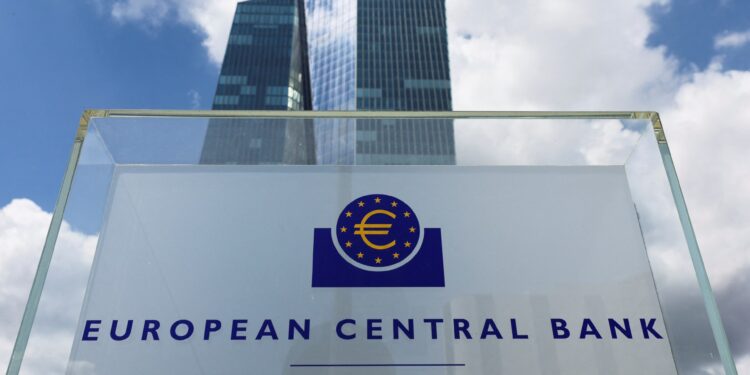Bloomberg said that the European Central Bank stated, in its semi-annual report on financial stability, that the escalation of global trade tensions increases the risks facing the European economy, and may lead to a doubling of vulnerabilities in the region’s financial system.
The bank’s report indicates that major economic risks have moved from focusing on high inflation to worrying about weak economic growth.
The report warned that geopolitical tensions increase the likelihood of “sudden and sharp reversals in risk sentiment,” given rising asset valuations and the concentration of risks in the financial system.
He added that the re-election of US President Donald Trump and his threat to impose new customs tariffs on trading partners represents a major escalation in trade disputes.
This week, Bundesbank President Joachim Nagel said the world is “on the verge of a major escalation of geo-economic divisions.”
Impact on European growth
Bloomberg expected that the escalation in trade tensions would slow the European economic recovery at a slower pace than expected.
The report indicates that the potential tariffs that Trump threatens to impose on Chinese goods (60%) and the rest of the world (20%) may cause a loss of about 1% of the euro zone’s GDP, according to Bloomberg Economics estimates.
The bank stated that escalating geopolitical conflicts, such as those in the Middle East and Ukraine, could lead to higher prices for energy and imported goods, which could put additional inflationary pressures on the European economy.
The report noted that “the escalation of these tensions could have a significant impact on the growth of the euro area, through rising energy prices and weak household and business confidence.”
Increasing sovereign debt burdens
On the other hand, the report warned of the risks associated with sovereign debt, indicating that the costs of servicing public debt are likely to rise as outstanding debts are refinanced at higher interest rates.
The bank stressed that the weakness in the financial foundations of some countries, coupled with weak growth potential, raises concerns about the sustainability of government borrowing.
Although overall credit risk remains moderate so far, small and medium-sized businesses as well as low-income households may face pressure if economic growth slows more than expected.
This could negatively affect the asset quality of financial intermediaries in the euro area, according to the report.
As trade and geopolitical tensions continue to escalate, the European Central Bank finds itself facing major challenges.
The report noted that “increasing tensions and the trend toward protectionism may hamper global growth and place additional burdens on financial markets.”



